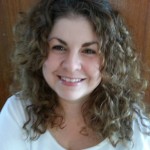Page 288 • (2,917 results in 0.121 seconds)
-
past and current recovery efforts more difficult. According to the Treaty Tribes in Western Washington (2020) there has “been local success in the recovery of estuarine habitat” but also states that “We know the status quo isn’t working when it comes to salmon recovery. We know what the science says needs to be done. We know that we must move forward together to address habitat because it is the most important action we can take recover salmon”. As mentioned previously, invertebrate population
-
committee members, including: One Doctor of Veterinary Medicine, with training or experience in laboratory animal science and medicine, who has direct or delegated program authority and responsibility for activities involving animals at the institution; At least one practicing scientist experienced in research involving animals; One member whose primary concerns are in a nonscientific area (for example, an ethicist, lawyer, member of the clergy); and One individual who is not affiliated with Pacific
-
Espresso Cart Hauge Administration Building All locations accept Dining Dollars, LuteBuck$, Cash, and VISA/MasterCard. As a commuter student, are there places for me to relax and study?There are several lounges on the campus. The University Center has an open lounge on the lower level beneath and behind the stairwell area called “The Cave.” Lounges especially designed for off-campus students are found on the upper level of the Hauge Administration Building, the first floor of the Rieke Science Center
-
deeply rooted. This is not something new. It is intensified because of COVID and rhetoric directed against Asian and Chinese people. This is something ACPSS and Chinese community members, lawmakers, and scholars and social science and health professionals need to face and address. Jingyi Song Professor of History Dept. of History and Philosophy SUNY at Old Westbury Behind the cruel and violent attacks on Asian Americans Racist attacks have soared against Asian Americans and their communities amid the
-
worker require this broad theoretical perspective. Social workers are involved in areas that are influenced by political, economic, social, psychological and cultural factors. To that end, the program stresses an understanding of social science theories and methods. The curriculum provides a foundation for understanding the interaction of individual, family, and community systems, as the basis for generalist practice. Students learn a multi-method approach to social work practice that enables them to
-
order to obtain the information. In collaboration efforts, the β-sheet W2KL11 peptide was subjected to structural and topological studies as well. Wednesday, April 29th, 2009 1:50 pm - Teaching through Experiments: Laboratory Experiments in the High School Chemistry CurriculumMarie Reardon, Senior Capstone Seminar Teaching science is a unique experience. Not only is there an expectation that a set of concepts that must be taught, but it is also necessary to provide students with authentic hands-on
-
media attention. Presenters: Kevin P. Spicer, the James J. Kenneally Distinguished Professor of History at Stonehill College, Easton, Massachusetts Martina Cucchiara, Assistant Professor of History, Bluffton University in Ohio Martin Menke, Professor of History and Political Science, Rivier University in Nashua, New Hampshire Mark Weitzman, Director of Government Affairs for the Simon Wiesenthal Center and Chief Representative of the Center to the United Nations in New York Moderator: Antonios
-
professional in your dealings with the clients we point to you. How do I know if a music major is right for me?The simplest answer is that a degree in music is right for you if you can’t see yourself doing anything else. If you really want to learn music on a high level, we’ll give you what you need. What can I do with a music degree?The same thing you do with any other degree. The main thing to remember is that you will have a degree from an accredited university, just like the business and science majors
-
feminist, process and Lutheran theologies and has focused on Christology, theological anthropology, the doctrine of God, and science and religion (including economics, geoengineering and ecology). As a contributor and editor, she published Cross Examinations: Readings on the Meaning of the Cross Today (Fortress, 2006) and contributed to Transformative Lutheran Theologies (Fortress, 2010) and Lutherrenaissance: Past and Present (Vandenhoeck & Ruprecht, 2015) along with several other journals and books
-

job than your average English teacher—in fact, my students are all products of good English teachers and parents who encourage reading, which I’m so thankful for! I don’t know that I teach them how to write or be creative. I’m not sure that I can do that, in the way that a science teacher does a lab or an English teacher explains verb agreement. I think my role is more to whip up excitement about this work, about books and stories in general, and let them kind of roll around in all of it in a
Do you have any feedback for us? If so, feel free to use our Feedback Form.


